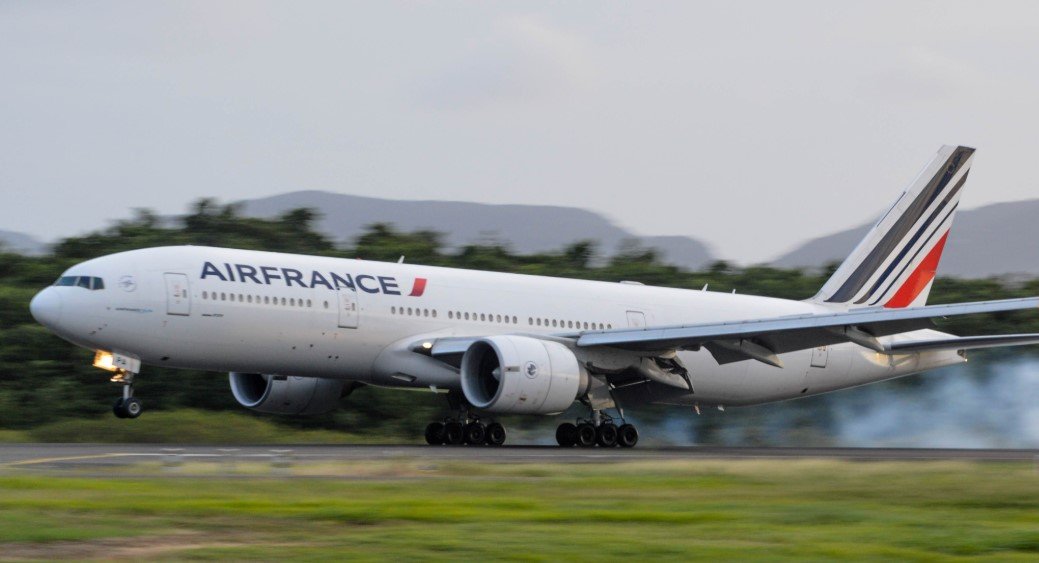Air France announced it will resume daily nonstop flights from Paris to Tel Aviv starting May 27, while Lufthansa has decided to extend its suspension of Tel Aviv routes until mid-June. This comes after a Houthi missile struck near Tel Aviv’s main airport earlier this month, causing a major disruption for international carriers.
Air France Bounces Back, Lufthansa Stays Cautious
After the May 4 Houthi missile attack that hit close to Terminal 3 at Ben Gurion Airport in Tel Aviv, many airlines quickly pulled out, leaving travelers in a bind. Air France’s decision to resume flights signals cautious optimism, though the airline emphasizes constant monitoring of the volatile geopolitical situation. The French carrier will operate a daily Boeing 777-300 service from Paris Charles de Gaulle.
Interestingly, Lufthansa, which had suspended flights immediately after the strike, announced it will keep its flights on hold until June 15. The German airline group said safety remains paramount and they are carefully reviewing security updates before resuming service.
This split between two major European players highlights the uncertainty still hanging over the region. It’s not just Europe watching closely — US-based Delta, Hungarian Wizz Air, and Greece’s Aegean Airlines have already resumed operations to Tel Aviv, suggesting some carriers are willing to take the risk, while others remain hesitant.

Impact on Travelers and Regional Aviation
The missile strike caught many off guard. Israeli air defenses failed to intercept the ballistic missile, which landed just a few hundred yards from the airport control tower. That close call prompted immediate cancellations from dozens of international airlines. Many passengers were stranded mid-trip, scrambling to find alternate routes or face long delays.
The incident has rattled confidence in the region’s airspace safety. Even though Ben Gurion Airport is one of the busiest and best-secured hubs in the Middle East, the risk of missile threats remains a big concern for airlines.
The extended suspensions have also led to economic ripple effects. The aviation industry in Israel relies heavily on international tourism and business travel, which has taken a hit in recent weeks. Airlines balancing the risk-reward of flying into a tense environment are walking a tightrope.
Here’s a quick glance at how some carriers have responded since the strike:
-
Air France: Resuming flights May 27, daily service with Boeing 777-300.
-
Lufthansa Group: Extending suspension until June 15.
-
Delta Airlines: Resumed flights earlier this month.
-
Wizz Air: Hungarian low-cost carrier resumed flights.
-
Aegean Airlines: Restarted operations recently.
Airlines’ Tightrope Walk: Safety vs. Service
Balancing passenger safety and maintaining service is tricky, especially in conflict zones or near hotspots. The missile strike near Tel Aviv’s airport forced airlines to rethink operational risk assessments, insurance costs, and emergency preparedness.
Some experts say these decisions aren’t purely about security. Airlines must weigh reputational damage if an incident happens mid-flight, along with the financial losses from suspending profitable routes.
One aviation analyst noted, “This missile strike, while fortunately not causing casualties, is a stark reminder that geopolitical risks can hit the airline industry hard and fast. Airlines’ cautious approaches reflect the pressure to safeguard passengers but also keep commercial flights running.”
This ongoing situation shines a spotlight on how airlines must stay flexible — rapidly adjusting routes, crew availability, and schedules to deal with unexpected disruptions.
What’s Next for Air Travel to Tel Aviv?
With Air France back in the skies, passengers hoping to get to Israel have a little more breathing room. But the threat level remains high, and airlines like Lufthansa aren’t rushing back just yet.
Will more carriers resume flights soon? It’s hard to say. The Middle East often sees fluctuating tensions that impact air travel unpredictably. Travelers and businesses will be watching government advisories closely.
Here’s a simple table showing the current status of major airlines flying to Tel Aviv after the missile strike:
| Airline | Flight Status | Resumption Date | Aircraft Type |
|---|---|---|---|
| Air France | Resuming daily flights | May 27, 2025 | Boeing 777-300 |
| Lufthansa | Suspended | June 15, 2025 (tentative) | N/A |
| Delta | Operating | Resumed early May | Various widebodies |
| Wizz Air | Operating | Resumed early May | Airbus A320 family |
| Aegean Airlines | Operating | Resumed recently | Airbus A320 family |
One thing’s clear: the region’s delicate political climate will keep airlines on their toes. Travelers should expect sudden changes and keep an eye on official updates.
